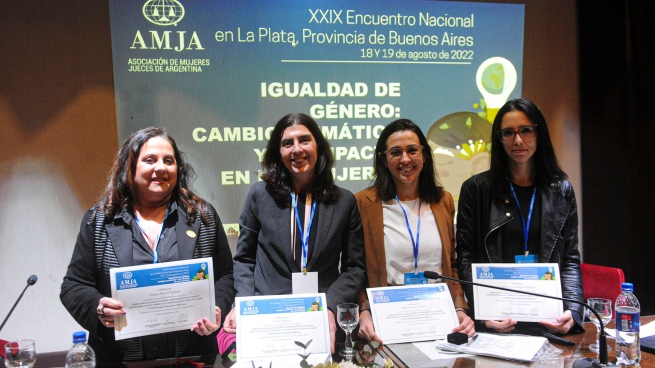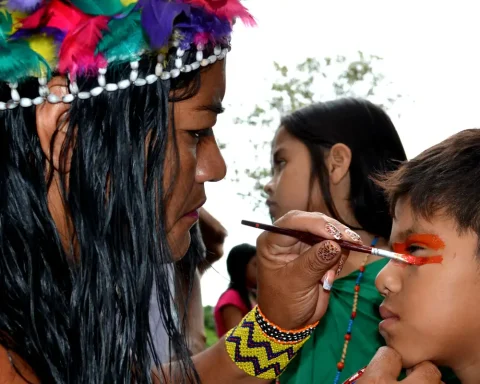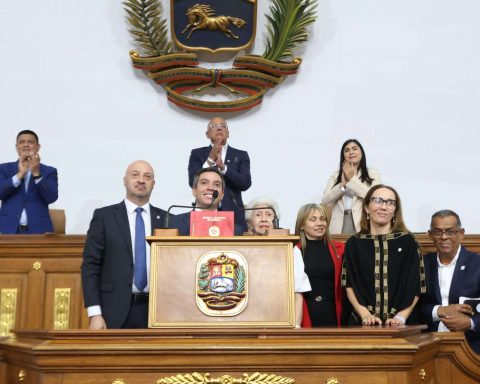Judges from all over the country demanded this Thursday more participation of women and diversities in the organizations that plan strategies for the mitigation of climate change after denouncing that they are the ones who suffer the most from this environmental problem.

“We are not in the main places of power and decision”he claimed Estela Diazthe provincial Minister of Women, Gender Policies and Sexual Diversity at the opening of the XXIX National Meeting of the Association of Women Judges of Argentina (AMJA) that this opportunity had as its axis “Gender Equality: climate change and its impact on women “, which took place this Thursday at the La Plata Bar Association.

The minister remarked that “women transform the institutions we reach. I trust women participating strongly, we know that transformations are not made alone, it is done with articulation, with a feminist movement that has put the environmental issue on the table as a crucial issue.

Aida TardittiMinister of the Superior Court of Justice of Córdoba and President of the Association of Women Judges of Argentina (AMJA), expressed that “we are citizens of the earth concerned about the planet. We are the first to feel climate change and the first to have the chance to do something.”
“On such an important issue, the vision of women has not been present,” she pointed out and explained that “of the 25 public agencies in charge of the environment, spaces where decisions are made, only 32 percent are women.”
Tarditti argued that “more women are needed in spaces that represent spaces linked to climate change, more women.”

Delphine Garcia HamiltonSpecialist in Governance, Women, Peace and Security at UN Women in Latin America and the Caribbean, stated that “women are the ones who suffer the most from environmental, economic and social crises. Our burdens are associated with a socioeconomic structure of society, the feminization of poverty, less access to the Earth, to resources such as water and technology”.
“When there is an (environmental) disaster, women have a differential and disproportionate impact. A disproportionate burden as food providers, water providers and managers of water, fuel and energy in homes,” she explained.

García Hamilton reported that “it is estimated that by 2050 there will be a huge displacement of people, forced displacement due to climate change.”

“Human mobility is impacted by gender issues, women and girls are more prone to gender-based violence, in situations of trafficking for the purpose of sexual and labor exploitation,” he pointed out.
She also denounced that “only 3 percent of philanthropic donations go to support the environmental activism of girls and women. And in general, the large financial climate funds invest on a large scale and the organizations led by women are usually small organizations with less scale that do not access these funds”.

“Change presents an opportunity and the challenge is to face it with a gender perspective. It is necessary to respond to differentiated needs, take actions adapted to different needs, that women participate in decision-making, involve indigenous women in dialogue since there is ancestral knowledge that tends to minimize climate change and disaster reduction,” he warned.
Veronica BarracatCoordinator of the UN Women Country Program in Argentina, detailed the work of that agency, the youngest in the UN since it dates back to 2010, and the specific program it has in Argentina linked to the Chaco area of Salta and the water problem.


















